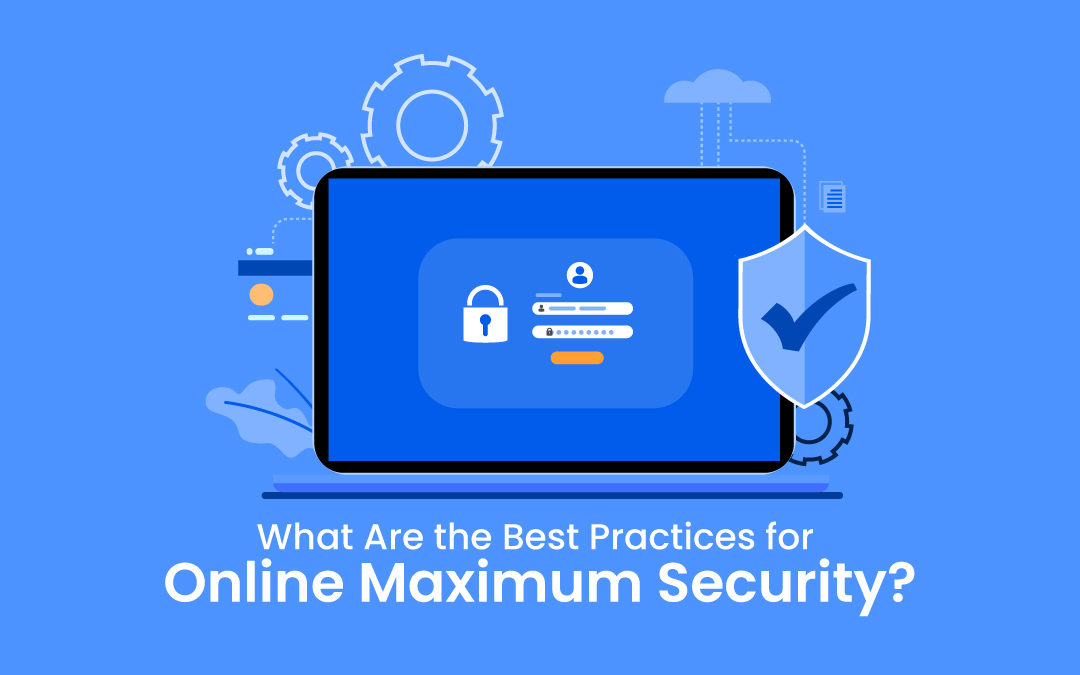
1. Use Strong, Unique Passwords
At the time of writing, this remains one of the bedrock principles for maximum online security: selectively use strong unique passwords. Combine letters with numbers and special characters to make a strong password. Keep away from widespread nouns, names, and birthdays as they are straightforward to guess. Use a different password for each account so that in case of your breach on one platform will not affect the other accounts. Use a password manager for safekeeping and to generate strong passwords so you don't have to go through the entire ordeal while keeping your accounts secure.
2. Enable Two-Factor Authentication (2FA)
This is an extra layer of security that goes beyond just your password and is called Two-factor authentication (2FA). Once you enter your password, 2FA demands a separate means of identifying yourself — like getting an SMS with a code to punch in or generating one via an app. This extra step in authentication does a lot from a security standpoint, and it blocks out unauthorized users as long as they do not have your password.
3. Keep Software and Systems Updated
Software and your system should always be updated as much as possible for the ultimate online security. Typically, software updates contain fixes for known exploits hackers used to mess with your tech. To stay one step ahead of the bad guys, make sure you have your operating system, applications, and antivirus software up to date. If available, enable automatic updates to streamline this process.
4. Be Wary of Phishing Scams
A common way cybercriminals get access to personal information is through phishing. Scams that are phrased like official communiques or text messages will inevitably attempt to solicit information from you, often these ostensibly placed phishing scams build into gathering details about your whereabouts. Remember to always check the legitimacy before you click on a link or provide personal information. Do not respond to unsolicited requests for sensitive information, even if they come from people or businesses claiming to be official.
5. Use Secure Connections
Ensure that you use secure connections while surfing the web and executing transactions online. Shop on sites where you see "https://" at the beginning of the web address — that means encryption is used to protect data. The state that everyone knows is that public Wi-Fi networks are unsafe for transactions because they can be intercepted. If needed, employ a VPN for added encryption and privacy.
6. Monitor Your Accounts Regularly
Keeping watch on your accounts can help detect abnormal activity and give you an inkling pretty quickly. Check your bank statements, credit reports, and account transactions every month for any mistakes or unauthorized charges. Getting your financial institutions involved as soon as possible can help to reduce further damage and lower the potential loss.
7. Educate Yourself and Others
Being educated on the many cyber security threats and ideal practices is important for being able to secure your online maximum. Familiarize yourself and your employees at extreme risk or house with safe internet practices, as well as security tools Preventing cyberattacks Awareness and vigilance are important first steps in preventing potential vulnerabilities within an organization.
8. Back Up Important Data
Performing a backup of your important data regularly helps prevent the loss of it. In case of a cyberattack or hardware fault, if you have recent backups you can recover your data quickly and get back to the business as usual with minimum downtime. Implement best-known backup practices, keeping backups secure in an offsite or cloud environment to ensure the physical safety of data and prevention against loss because of theft.
9. Use Antivirus and Anti-Malware Software
Unfortunately, few things can wreak havoc like a computer virus or malware. It’s essential to have reliable security software running in the background. These tools can detect and remove malicious software that poses a threat to your online safety. Make sure your security software is configured to run regular system scans and that its virus definitions are kept up to date for maximum protection.
10. Practice Caution with Social Media
Cybercriminals often target individuals’ personal information through social networking platforms. Carefully consider what you share online, and adjust your privacy settings to control who can view your posts and personal details. Be cautious, as even seemingly harmless information can potentially be used for scams or identity fraud.
Bottom Line
Finally, to enhance safety, online users should create strong passwords, enable two-factor authentication, and update them regularly. It’s also important to stay vigilant against phishing attempts. Additionally, always ensure your internet connection is secure and follow safe browsing practices.
Share this post
Leave a comment
All comments are moderated. Spammy and bot submitted comments are deleted. Please submit the comments that are helpful to others, and we'll approve your comments. A comment that includes outbound link will only be approved if the content is relevant to the topic, and has some value to our readers.


Comments (0)
No comment